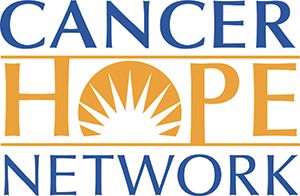
Communication Remains an Important Tool for Cancer Caregivers

Cancer caregivers can already feel isolated and lonely, and with the COVID-19 Pandemic forcing people to stay home it can get worse. But good communication can help create a sense of community and allow caregivers to feel less lonely.
When her mother-in-law was going through cancer treatment, Sarah Miretty Cassidy found herself feeling helpless. But by connecting with others who understood what she was going through, she was better able to cope with those feelings and hopes that others in a similar situation are able to do the same, especially now that the COVID-19 pandemic continues to impact the cancer community.
CURE® recently spoke with Cassidy, the director of external affairs at the Cancer Hope Network, about how social isolation can compound the feelings of helplessness that caregivers may feel, and how talking with others may not be able to change one’s circumstances, but it can provide perspective to lessen feelings of loneliness and seclusion.
Transcription
I think they (caregivers) share many of (the challenges patients are facing now), and I also think there’s an additional layer of helplessness. In my own experience as a caregiver, I learned that there are a lot of things I can change, and I can do. And I think cancer impacts a lot of us that way. In that, whether it’s yourself dealing with a diagnosis, or your loved one, it’s suddenly completely and utterly out of your control.
Then to add COVID-19 and a worldwide pandemic to that lack of control, it’s an understatement to say the least. But we have found that people are talking and being able to connect, but they may not be able to fix it. I learned that — (in talking with others) they couldn’t shrink my mother’s tumors or raise her white blood cell count. But they could help me to share and help me to work through what I was feeling. And even after we lost her, I was able to talk with other people who understood what I was going through.
And I think that that experience, while its new for a lot of us, in this particular time in the world, it translates into an augmented version of what a lot of caregivers are going through. And it’s something that, talking to somebody and connecting with someone who really understands may not make it better, but they can certainly help you to work through it.




